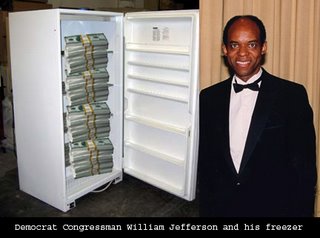I'm back--at least temporarily--and I've been trying to catch up on what's been going down in the blog world the past week. While my PC was silent in the corner, I watched way too much Foxnews, CNN, and MSNBC coverage of and commentary on the Israeli-Hezbollah conflict without the ameliorating effect of sharing opinion and arguing points with other human beings.
My frustration grew with each snide remark and glare of Paula Zahn, with Kofi's game, with CNN International's anti-Israeli bias, with the near insane and absurd rantings of Chris Matthews, the complaints and whines of those who expect America to stop.the.violence.NOW, the shouts of proportionality and civilian casualties. But you absolutely MUST engage Syria! Remember Kissinger!
I was ready to burst so I started watching movies instead. Have you ever seen 'Robots'? A leftish plot concerning corporations and their favorite word, greed, but fun to watch anyway. I did a render of robots dancing before I ever heard of that movie, but what can you do? I also saw 'JAWS' again! Perhaps that was my 123rd viewing but what the heck. Or 'Ferngully: The Last Rainforest': a greeny/lefty absurdity with stunningly beautiful artwork. I'd watch it again.
Then I heard someone complain that Americans are not engaged. They'd rather go shopping or watch their favorite TV shows and I almost threw my shoe through the screen.
It seems almost absurd that the war is on tv yet it feels like a natural evolution of our technology at the same time. And being televised has consequences. The first televised war was Vietnam and the consequences of that, I believe, were the boat people. There is deeper and wider coverage now than there was then but I think we're also more sophisticated and more used to images of war and perhaps somewhat better at putting it all into perspective. But that doesn't lessen the emotional impact of what we see on the screen.
We all want the violence to end.
And thus I believe it takes more courage to advocate staying the course than to demand a ceasefire. There is a war on war and we have to be very strong to fight the war against the reaction to war. And for that we must be vigilant and watch what we'd rather not see because I think viewers now have influence more than any other time in history. Both directly and via the internet.
Nick Robertson on CNN had a report from southern Beirut, the Hezbollah controlled area, and I think some viewers may have complained because he later did a report from there demonstrating how Hezbollah was propagandizing by choreographing the movement and sirens of ambulances for the camera. Ambulances which were there only for show, not to pick up injured civilians. CNN pulled the camera back so you could see for yourself.
Or Sanjay Gupta's reporting from the hospital in Lebanon. Several segments. Then he was off to Haifa to report from the hospital there. Was it CNN's idea to send him to Haifa? Or did viewers suggest he go?
But the next time a reporter interviews a Lebanese Hezbollah supporter, perhaps a woman with little kids, who says Hezbollah provides all their needs, all the social services they require for their day-to-day living. Mosques, schools, shelter, food. I'd like to hear a reporter say "but do they need rockets and missiles to do that?"
Or the next time a know-it-all like Zbigniew Brzezinski goes on a rant, instead of thanking him for his input, I'd like to see a host throw her head back and laugh.
(I'd love to see Sean Hannity use that tactic instead of wagging his fingers at a nutjob in an attempt to make him feel ashamed of himself.)
Okay, I've ranted on long enough, forgive me. I haven't written a word in almost a week. I will still watch tv as long as I can also engage on the internet. The wall-to-wall coverage of war will continue and we must deal with it. As Jim Pinkerton always reminds us, the best antidote for free speech is more free speech. If/when my computer dies again, I will go back to the movies for a break.















